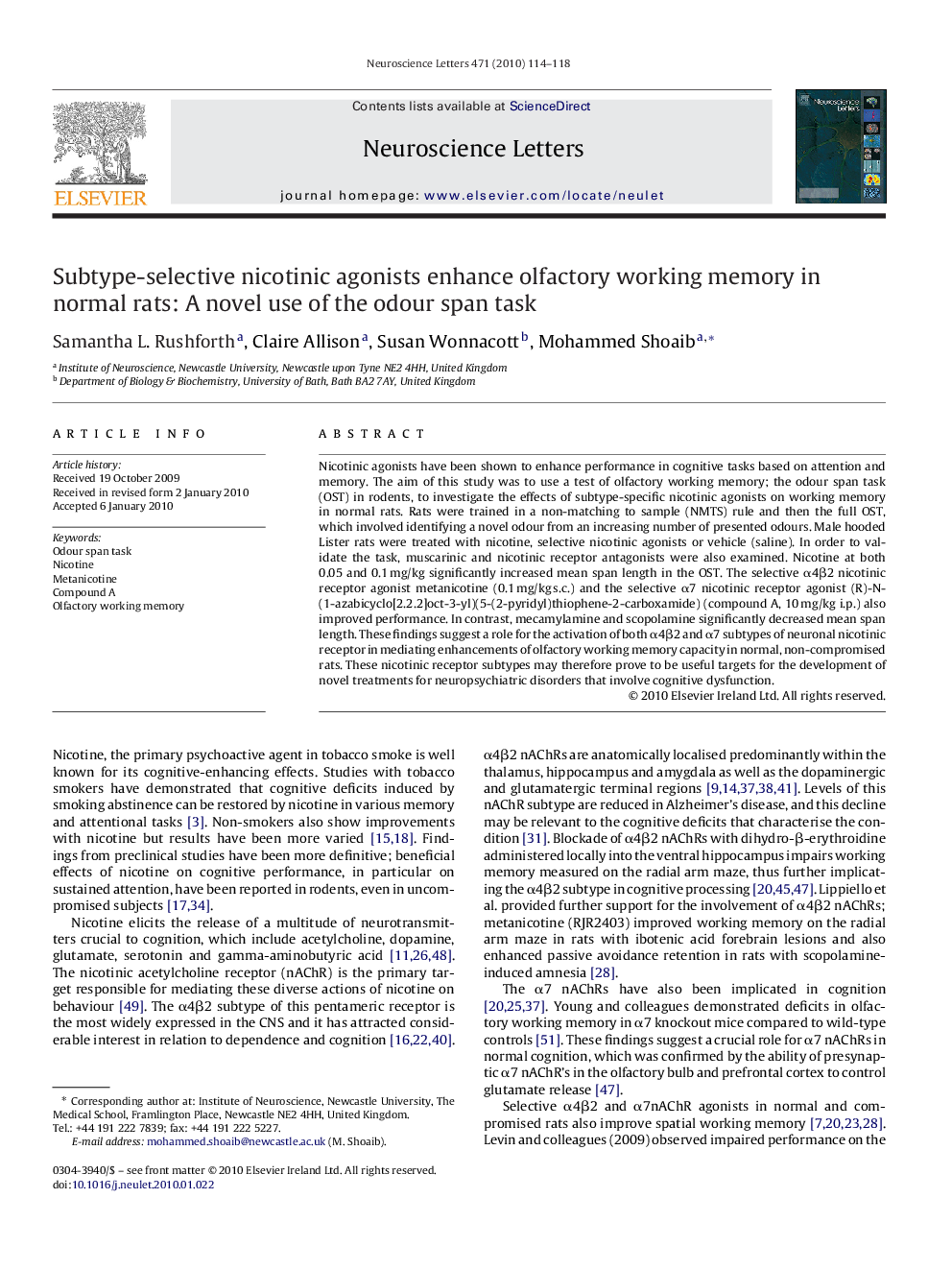| Article ID | Journal | Published Year | Pages | File Type |
|---|---|---|---|---|
| 4346351 | Neuroscience Letters | 2010 | 5 Pages |
Abstract
Nicotinic agonists have been shown to enhance performance in cognitive tasks based on attention and memory. The aim of this study was to use a test of olfactory working memory; the odour span task (OST) in rodents, to investigate the effects of subtype-specific nicotinic agonists on working memory in normal rats. Rats were trained in a non-matching to sample (NMTS) rule and then the full OST, which involved identifying a novel odour from an increasing number of presented odours. Male hooded Lister rats were treated with nicotine, selective nicotinic agonists or vehicle (saline). In order to validate the task, muscarinic and nicotinic receptor antagonists were also examined. Nicotine at both 0.05 and 0.1 mg/kg significantly increased mean span length in the OST. The selective α4β2 nicotinic receptor agonist metanicotine (0.1 mg/kg s.c.) and the selective α7 nicotinic receptor agonist (R)-N-(1-azabicyclo[2.2.2]oct-3-yl)(5-(2-pyridyl)thiophene-2-carboxamide) (compound A, 10 mg/kg i.p.) also improved performance. In contrast, mecamylamine and scopolamine significantly decreased mean span length. These findings suggest a role for the activation of both α4β2 and α7 subtypes of neuronal nicotinic receptor in mediating enhancements of olfactory working memory capacity in normal, non-compromised rats. These nicotinic receptor subtypes may therefore prove to be useful targets for the development of novel treatments for neuropsychiatric disorders that involve cognitive dysfunction.
Keywords
Related Topics
Life Sciences
Neuroscience
Neuroscience (General)
Authors
Samantha L. Rushforth, Claire Allison, Susan Wonnacott, Mohammed Shoaib,
